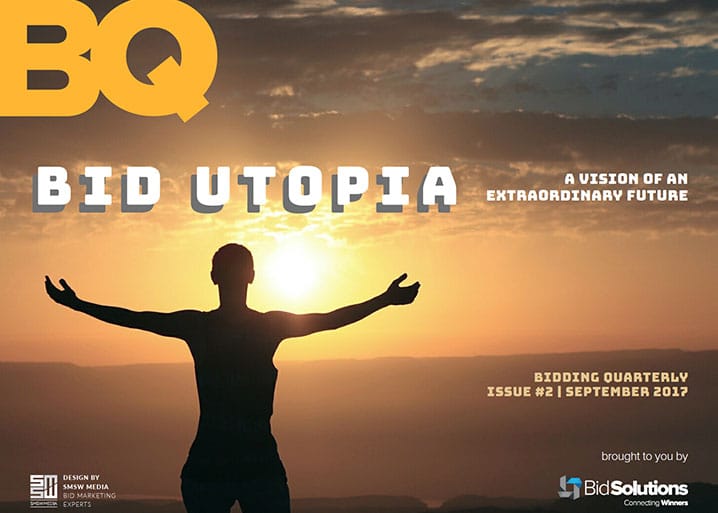
Discovering Bid Utopia
Think losing a bid is bad? Wait until you hear what happened to me
“Now I’ve met you, I wish I’d given you the contract.”
This is what I was told a few years ago by a CEO I bumped into at a social event. It was two years after I’d unsuccessfully bid into his multi-national company in a deal that would have been the biggest of my career at the time.
And if you want to know what feels worse than losing a bid, trust me, hearing that is a whole new level of kick in the gut.
You see, in the space of a half hour face-to-face conversation, a connection had been made between the two of us. I’d listened to his story, he’d listened to mine. I’d asked questions and answered his. I’d taken the time to really understand the challenges he faced and offered solutions he hadn’t even considered.
I’m in my element in front of someone, enjoying open discussion, making things happen and bouncing off their energy. And the impression I had made in person was ten times more powerful than the impression I’d made on paper.
I’d lost a bid I should have won, and the worst thing was – I was mostly to blame.
You’ll find out why later, but first let’s talk utopia.
My (unreachable) utopia
Although the current system has been designed to level the playing field, there’s an imbalance for those – like me – who are at their best in person, not on paper.
My bid utopia would see the procurement process run back to front, with clients and potential partners getting to know each other first and figuring out the formalities later.
In my opinion, the best business relationships are founded on friendship and mutual respect. And it only takes one meeting to get the most important things decided: do we like each other? Do we trust each other? Do we understand each other? Will we work well together?
Details can be ironed out afterwards.
This is how business used to be done and it’s how I’d like business to be done again.
Sadly, in a procurement led environment, I don’t think that will happen.
The systems and processes are too firmly set in place, and it would be near impossible to have a meet and greet with every potential new business partner.
But that doesn’t mean we can’t find creative and innovative ways to recreate the face-to-face experience without ever meeting or even talking directly.
In fact, that’s exactly what we should do – and it’s exactly how I spend my days helping businesses to win more bids.
It’s also exactly what I should have done, but didn’t, with the opportunity I told you about at the beginning of this article.
Part way to paradise
So if the perfect scenario is chatting to a CEO in person, but you can’t do it, what’s the next best thing?
I don’t want to give all my secrets away, but here are some tips:
- Look past the initial questions and requirements to unearth what really underpins them
There’s always deeper meaning – concerns, challenges, opportunities and ambitions – you just have to dig to find them. And once you do, what you’ve learned about the client can be weaved compellingly through your entire campaign, just like it would your conversation. It will reinforce at every page turn why you’re the best choice.
- Make promises and commitments
Most would do this in person, shortly before shaking hands to seal the deal, but won’t on paper. I have no idea why because the potential impact is even greater in ink.
- Get creative with your bid collateral to convey your character and USPs
For example, look at the dividers as advertising billboards. They are invaluable real estate to use for campaign messages, story showcases and client callouts. Or why not send a video of your workshop along with your executive brochure? There aren’t many better ways for the client to get a feel for you and how you work.
The bottom line
My utopia – where we go back to a time where two CEOs sit down and see the whites of each other’s eyes before the box ticking takes place – is destined to remain a dream.
But the good news is this: by infusing your bid material with charisma and creative elements that clearly illustrate who you are, you can leave the client feeling as though they have met you, liked you and are already inclined to give you the business.
I slipped up by not following my own advice for the bid I talked about earlier.
I won’t make that mistake again.
Instead of “Now I’ve met you, I wish I’d have given you the contract,” I’m aiming for “I felt like I’d already met you, which is why I’ve given you the contract” every time.
Do the same and save your gut from a kick it’ll never forget.

